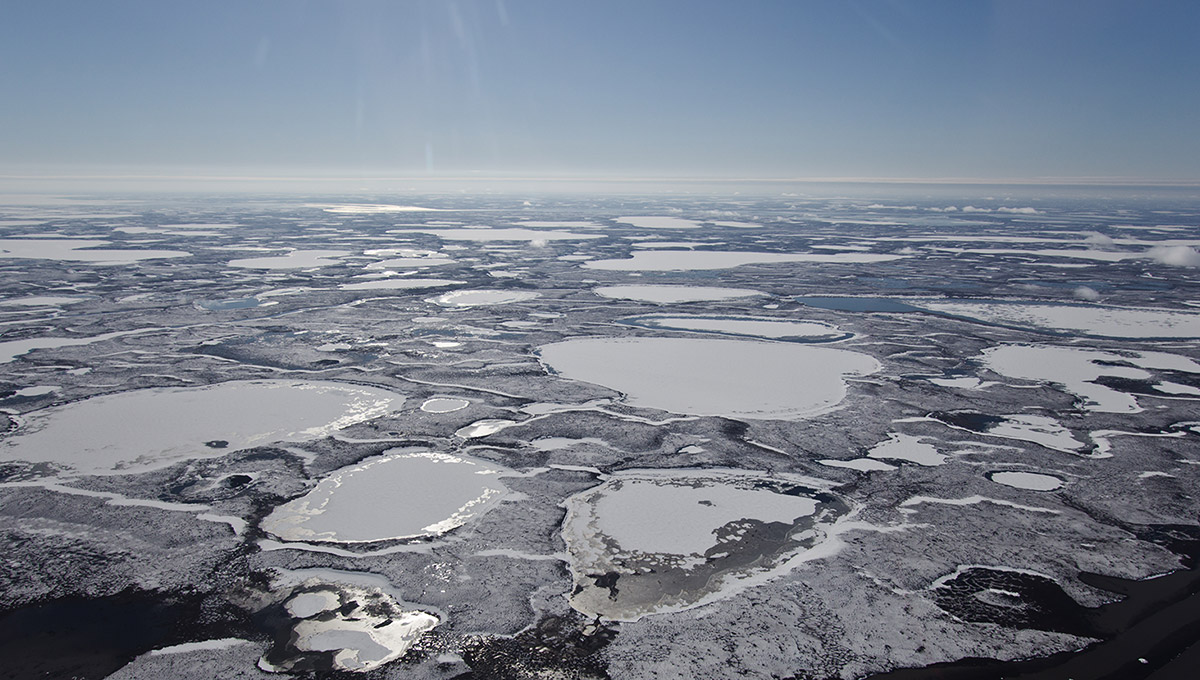By: Alysha A. Cunningham
Carleton University researchers have received $1.65 million from Natural Sciences and Engineering Research Council of Canada (NSERC) to support research and training in the area of permafrost, climate change and sustainability.
About 40 per cent of Canada’s land mass is underlain by permafrost, a layer of permanently frozen ground beneath the surface of the planet’s colder regions. As climate change drives up global temperatures, the ice in permafrost is thawing, posing a major threat to Arctic communities, infrastructure and ecosystems, as well as landscapes in other parts of the world.

Prof. Stephan Gruber (photo by Lindsay Ralph)
Through this funding from NSERC’s Collaborative Research and Training Experience (CREATE) program, Stephan Gruber, Canada Research Chair in Climate Change Impacts/Adaptation in Northern Canada at Carleton, and a team of researchers are addressing this threat to Arctic communities by leading a project aimed at training tomorrow’s leaders in permafrost thaw and northern research.
“The permafrost’s thaw brings serious, new, rapidly growing, and often surprising challenges that Canada is currently not well prepared to meet,” says Gruber, who is also a Professor in the Department of Geography and Environmental Studies in the Faculty of Arts and Social Sciences. “This funding will help us meet this rising challenge by training the next generation of researchers.”
Bringing together investigators from seven Canadian universities, including two investigators and six additional collaborators from Carleton, the project provides a collaborative and integrative approach to help Canada’s North plan for the future by training highly qualified students and postdoctoral fellows while also developing practical solutions for the adaptation of climate change effects to Canada’s permafrost.
“Ultimately, this research will lead to tools that inform forward-looking permafrost decision-making,” says Gruber.

Permafrost at the Mackenzie River Delta, NWT (hclphotography / iStock)
Gruber is also the scientific director of NSERC PermafrostNet, established in 2019 with a $5.5 million grant from NSERC, which unites key scholars and stakeholders from government agencies, industry and Indigenous communities with the common goal of boosting Canada’s ability to adapt to permafrost thaw.
The competitive nature of NSERC’s CREATE grants are a testament to Carleton’s strength and capacity in the area of permafrost, climate change and sustainability.
“This is yet another example of the important impacts of sustainability research conducted here at Carleton that is supported by a growing number of investments and partnerships with government,” said Rafik Goubran, Vice-President (Research and International).
Carleton has seen a 69 per cent increase in Tri-Agency funding since 2017, notably receiving two of the top Canadian science and engineering prizes awarded by NSERC this past year.
NSERC is the major federal agency responsible for funding natural sciences and engineering research in Canada. NSERC directly funds university professors and students as well as Canadian companies who are searching for scientific and technical breakthroughs that will benefit Canada.
Tuesday, April 18, 2023 in News Releases
Share: Twitter, Facebook



